
Culture China
07:34, 06-Jun-2019
Remembering Qu Yuan through his immortal poetry
CGTN
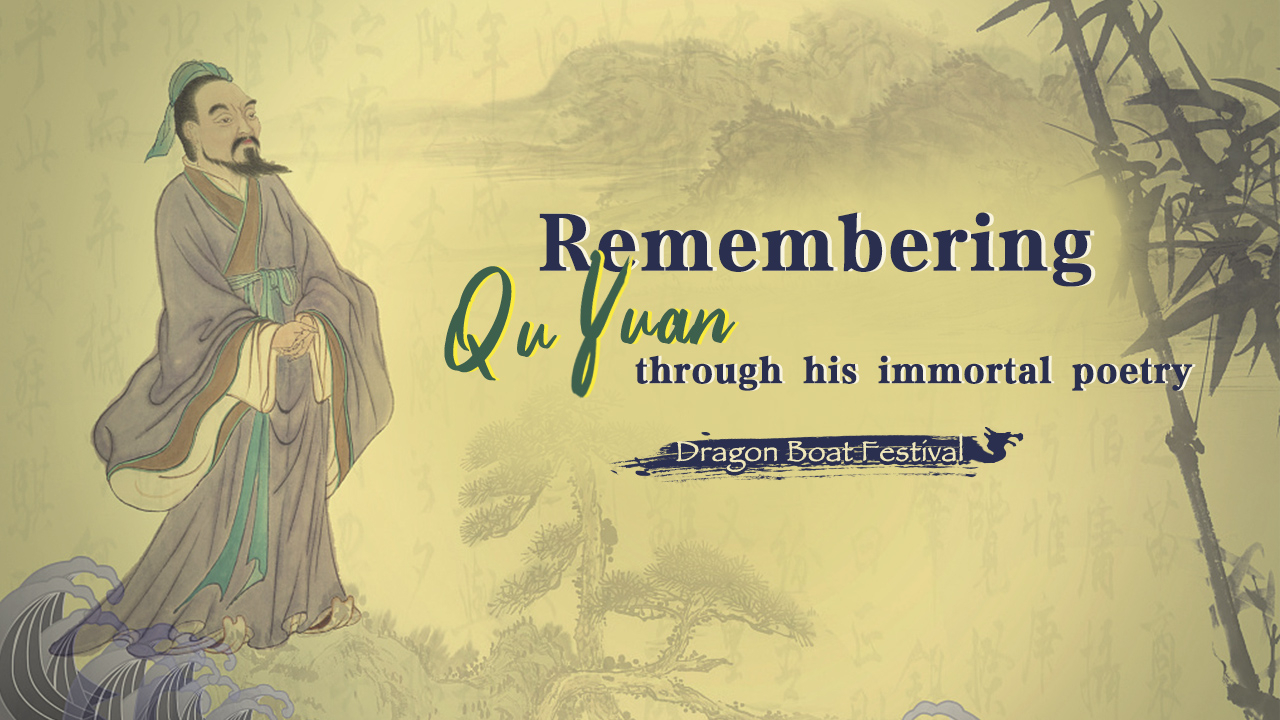
It's impossible to talk about the Dragon Boat Festival, which falls on the 5th day of the fifth month on lunar Chinese calendar, without mentioning Qu Yuan.
Born into a noble family in the State of Chu during the Warring States Period (475-221 B.C.), he first served as a high-ranking official responsible for internal and diplomatic affairs in Chu. However, his appeal for a political overhaul made him alien to the officialdom.
Qu wrote many famous poems during his exile. The poet expressed a deep concern and love for Chu and its people, and he is considered China's first poet and founder of romanticism in Chinese literature.
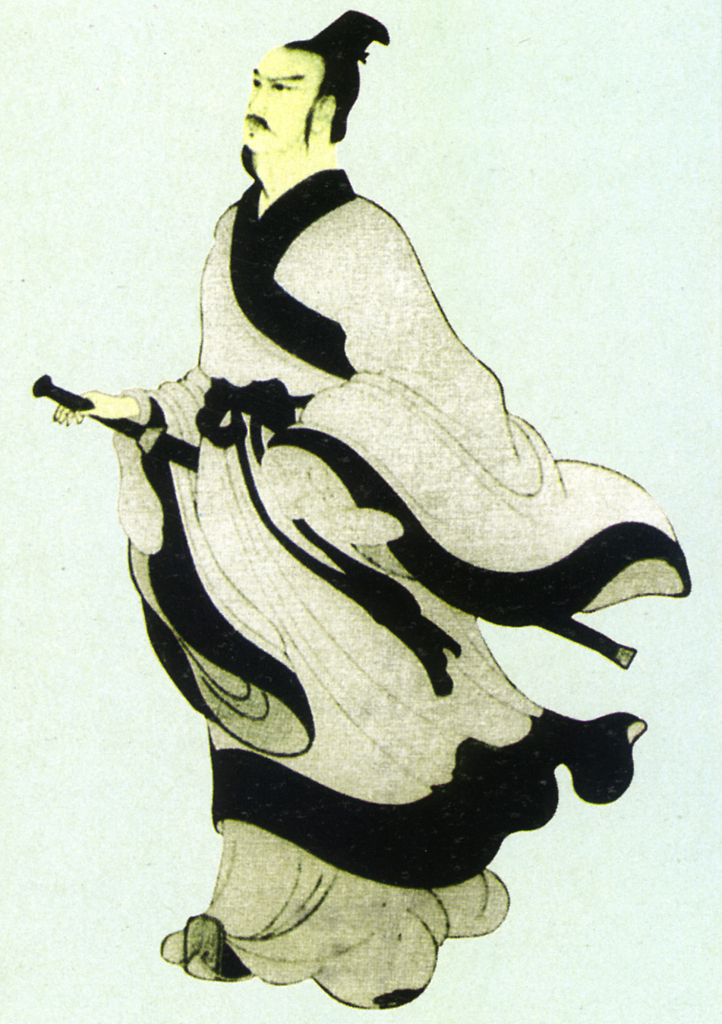
A portrait of Qu Yuan. /VCG Photo
A portrait of Qu Yuan. /VCG Photo
Most of his poems are very long, especially his masterpiece “Li Sao”, translated as “Encountering Sorrow” in English. It has nearly 2,500 words, making it the longest piece of lyric poetry in ancient China.
Other works include “Jiu Ge” (“Nine Songs”) – a collection of songs used in ancient shamanistic ritualistic dramas, and “Tian Wen” (“Questions to Heaven”) which is characterized by 172 questions put to the heaven.
Qu's literary legacy has influenced many subsequent generations in China and beyond. He was listed as one of the world's four literary celebrities by the World Peace Council in 1953, the other three being Francois Rabelais, Nicolaus Copernicus and William Shakespeare.
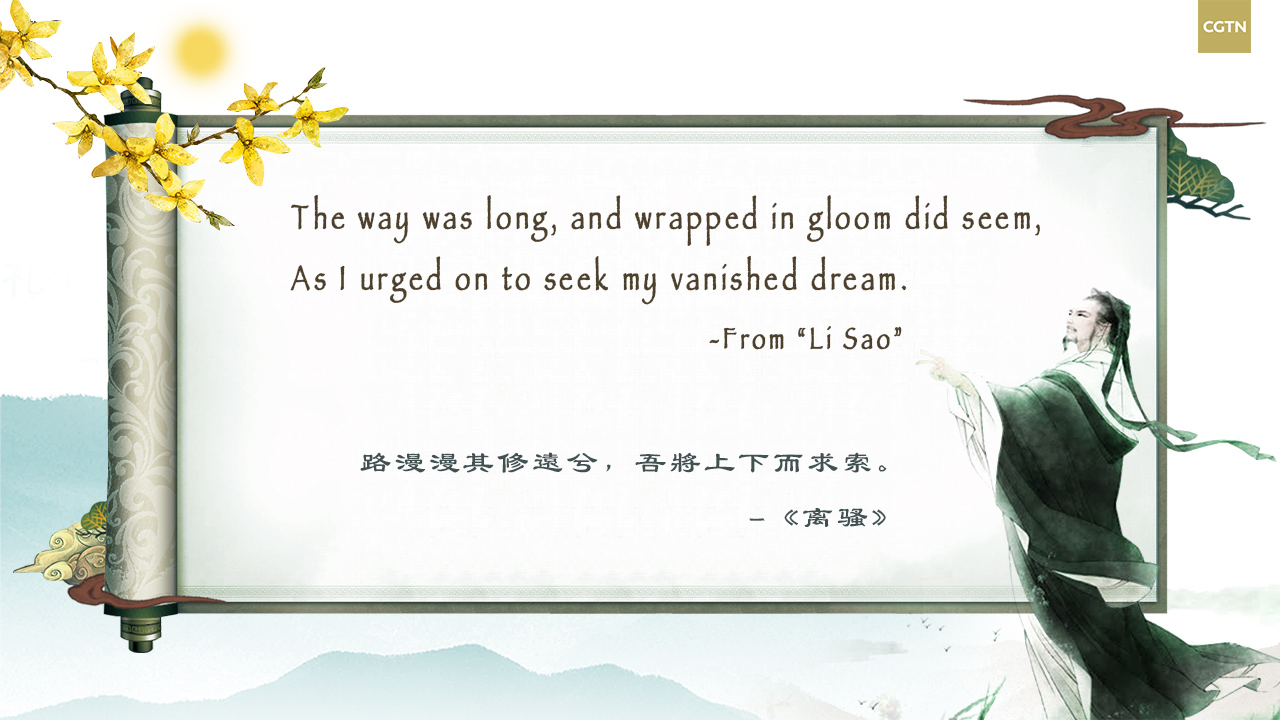
Excerpt of Qu Yuan's poem. /CGTN Photo
Excerpt of Qu Yuan's poem. /CGTN Photo
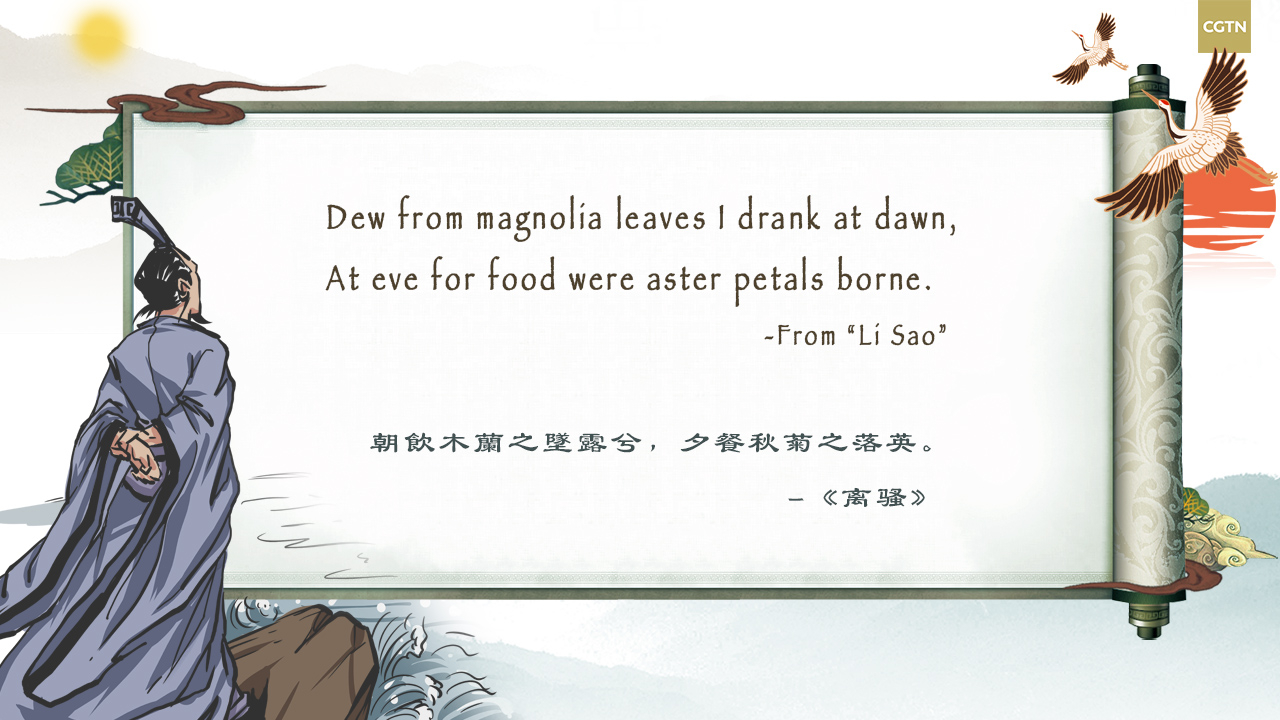
Excerpt from Qu Yuan's poem. /CGTN Photo
Excerpt from Qu Yuan's poem. /CGTN Photo
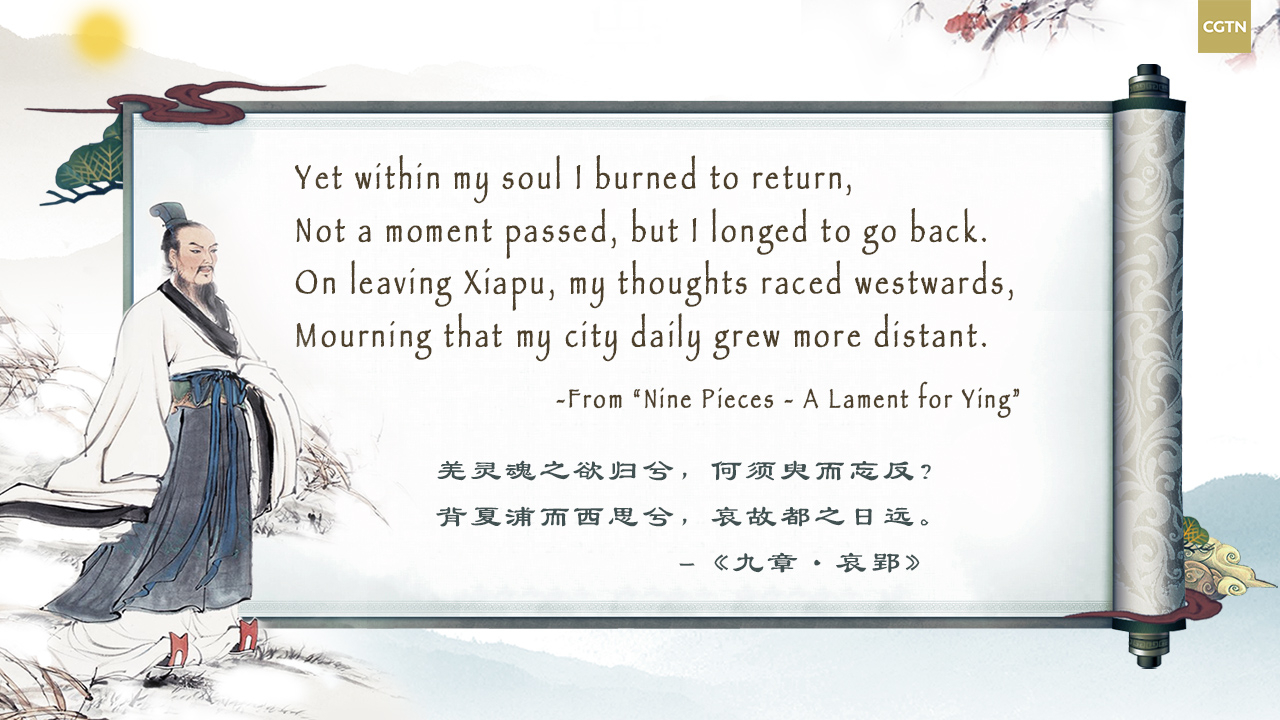
Excerpt from Yuan's poem. /CGTN Photo
Excerpt from Yuan's poem. /CGTN Photo
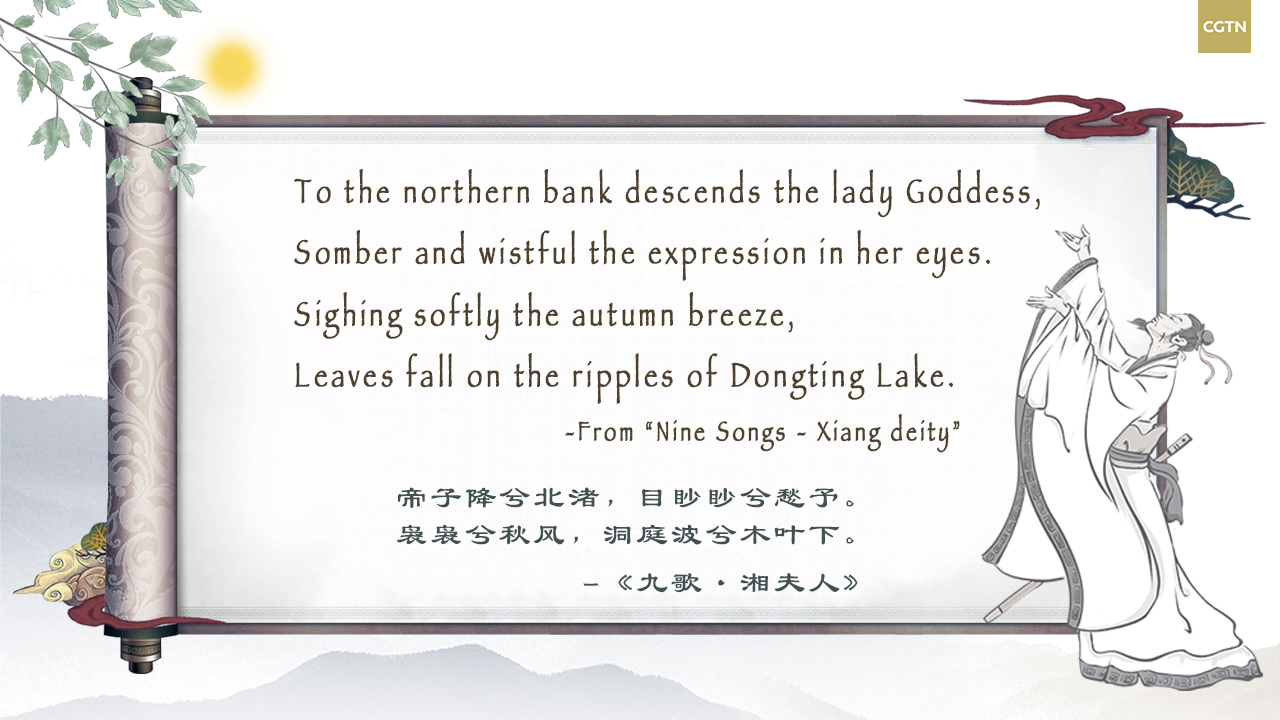
Excerpt from Qu Yuan's poem. /CGTN Photo
Excerpt from Qu Yuan's poem. /CGTN Photo
(Translations of the poem excerpts attributed to Yang Xianyi and Gladys B. Tayler)
(Photos designed by Yin Yating)

SITEMAP
Copyright © 2018 CGTN. Beijing ICP prepared NO.16065310-3
Copyright © 2018 CGTN. Beijing ICP prepared NO.16065310-3